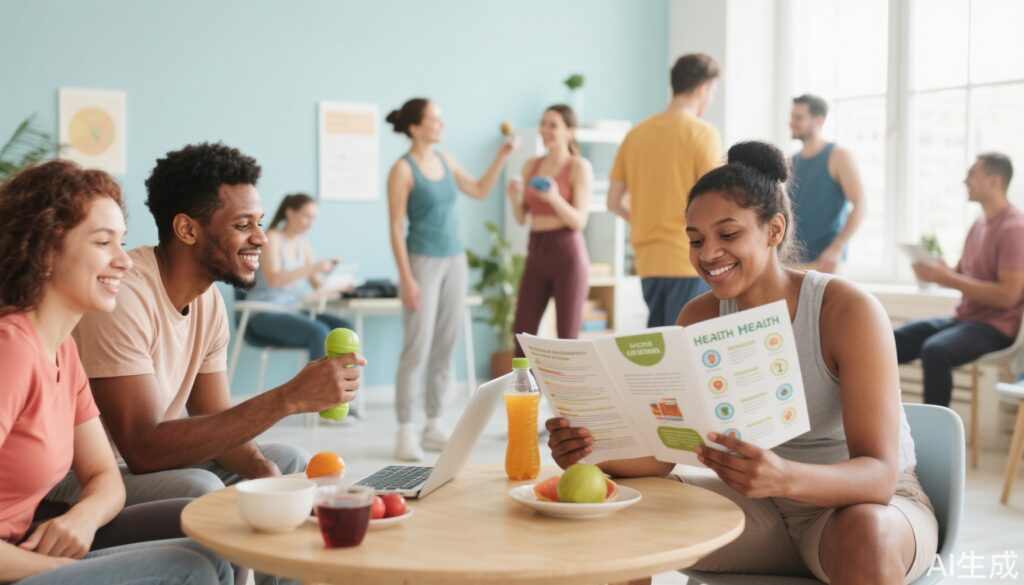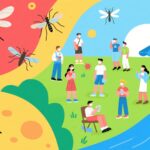Introduction: The Importance of Health Knowledge
Health knowledge is not just the domain of experts; it is a toolkit for everyone keen on living a long, healthy life. Without proper understanding, we may inadvertently engage in habits that are detrimental to our health. This article presents 40 indispensable health tips that everyone should know to safeguard their well-being.
Disease Prevention
-
Frequent tongue biting could be a sign of a stroke. While it’s normal to occasionally bite your tongue, doing it often could be a sign of a stroke. The brain nerves can become compressed, which affects the tongue’s movement.
-
Snoring can be deadly. Statistics show that 3-5% of people snore, and one in five snorers has obstructive sleep apnea. This condition can lead to chronic oxygen deprivation, which damages multiple organ systems and can even result in sudden death during sleep.
-
A painless lump is more dangerous than a painful one. If you find a new lump on your body, for example in your breast, one that is red, swollen, hot, and painful is often a simple inflammation. However, if a lump is painless and feels hard to move, the chance of it being malignant increases dramatically. If you find any unexplained, painless lumps, see a doctor immediately.
-
Bone spurs are a normal part of aging. Bone spurs are a natural byproduct of the aging process and are not necessarily a sign of disease. Most bone spurs that don’t cause symptoms don’t require treatment. No medication can get rid of bone spurs, but some can help with the pain.
-
The elderly and children should get a flu shot. The flu vaccine contains the three most common strains of the flu virus each year. While it can’t prevent all colds and flus, it does provide resistance against the most severe strains.
-
Eating too much sugar doesn’t cause diabetes. Type 1 diabetes is primarily genetic, and Type 2 is mainly caused by obesity. However, if you have high blood sugar, you should reduce your sugar intake.
-
Diet doesn’t directly cause stomach ulcers. The main cause of stomach ulcers is Helicobacter pylori infection, which can be transmitted through shared utensils and, in some cultures, by chewing food to feed children. The infection can be treated with antibiotics.
-
The most effective way to stop coughing quickly is to suck on a hard candy. Sucking on a hard candy creates a protective layer in your throat as you swallow the syrup, which can reduce irritation. Drinking honey water can also help, but a hard candy provides longer-lasting relief. Many clinical cough syrups use codeine to numb the nerves, and large amounts can be addictive.
-
Most colds are “incurable” and will go away on their own. The Common Cold Consensus published by the University of Wisconsin in 2010 found that over 100 viruses can cause colds, and there are no antiviral medications to treat them. Cold and flu medicines can only relieve symptoms; they don’t kill the virus. The human immune system is what fights off the cold, and symptoms usually resolve on their own within about a week, whether you take medicine or not.
-
Your emotional health is directly tied to your physical health. A study in the U.S. found that 75% of neck pain, 80% of headaches, 99% of abdominal bloating, and 90% of fatigue are caused by excessive emotions. Every organ in the body is linked to a corresponding emotion.
Safe Medication Use
-
Wait before taking fever reducers. A recent study from China’s Institute of Biochemistry and Cell Biology, published in the journal Immunity, suggests that if a patient’s body can handle it, allowing a fever to stay above 101.3°F (38.5°C) for a while before taking fever reducers may help the body clear pathogens more effectively.
-
Space out combination cold medications by at least 4 hours. Many cold medicines contain acetaminophen. Taking multiple cold medicines, or mixing Western and traditional medicines, can lead to an overdose and cause liver damage.
-
Natural vitamins aren’t necessarily better than synthetic ones. There is no difference in how your body uses natural vs. synthetic vitamins. In fact, natural vitamins can be more likely to have impurities from the extraction process. A low-cost, store-brand vitamin supplement is usually sufficient.
-
No eye drops can reverse cataracts. While some eye drops may slow the progression of cataracts, none can reverse the condition. The most effective treatment for cataracts is surgery.
-
Don’t smoke when taking medication. Nicotine in cigarettes speeds up the liver’s metabolism of drugs, which can lower drug concentrations in your blood and reduce their effectiveness. Avoid smoking for at least 30 minutes after taking any medication.
-
Don’t drink water for 5 minutes after taking cough syrup. Cough syrup is a liquid medication that works by coating your throat. Drinking water immediately afterward can dilute the syrup and reduce its effectiveness. If you’re taking multiple medications, take the cough syrup last.
-
Don’t put eye drops directly on your eyeball. Instead of placing eye drops directly on your cornea, you should pull down your lower eyelid and place the drops in the pouch created, or on the white part of your eye.
-
“Three times a day” doesn’t always mean after meals. “Three times a day” on a prescription often means every 8 hours. For example, antibiotics, painkillers, and steroids should be taken every 8 hours. However, medications for diabetes, cholesterol, or stomach issues should be taken with meals. Always read the instructions carefully and follow your doctor’s advice.
-
Look for these 10 suffixes to spot antibiotics. To identify antibiotics and avoid overuse, look for these suffixes: -cillin, -mycin, -floxacin, -cef, -oxacin, -azole, -thromycin, -sulfate, -cycline, -penem. If a drug name ends with one of these, it’s likely an antibiotic.
-
Don’t take throat lozenges if you don’t have a sore throat. Treating throat lozenges like candy can kill beneficial bacteria in your mouth, leading to an imbalance that can cause fungal infections, canker sores, and other oral health issues. Only use them when you have symptoms.
Nutrition and Diet
-
If an ingredient is refined, it’s probably not good for you. For example, saccharin is a chemical derived from coal tar, and many people avoid it. The same goes for certain additives. A healthy diet consists of natural, whole foods prepared with simple cooking methods.
-
Drinking soup alone won’t make you healthy. Even after long hours of simmering, soup is still just a thin liquid with some fat and water-soluble amino acids. Most of the nutrients remain in the meat. Bone broth also doesn’t provide much calcium; it has only slightly more than tap water and is high in fat.
-
Apples and pears are better for constipation than bananas. Only very ripe bananas can help with constipation. Unripe bananas can actually make it worse. High-fiber fruits like apples and pears are a much better choice for promoting bowel regularity.
-
There are only three kinds of healthy snacks. Fruits, nuts, and yogurt. When choosing nuts, be mindful of portion sizes. For yogurt, opt for plain varieties with minimal additives.
-
Toast and milk aren’t a healthy breakfast. This combination is often high in refined carbohydrates and sugar, which can cause a rapid spike and then crash in blood sugar, leaving you feeling tired. Processed bread can also be low in nutrients.
-
Don’t believe in “food combinations.” The idea that certain foods, like spinach and tofu, shouldn’t be eaten together because they inhibit nutrient absorption is a myth. The human digestive system is complex and can handle a wide variety of foods at once. Focus on a balanced diet and enjoy your food without unnecessary worry.
-
A “light” diet means less oil and salt. A light diet isn’t about eating bland food like boiled vegetables every day. It means reducing your intake of oil and salt. Your body needs essential fats and minerals to function.
-
Making a vegetable smoothie is better than making a fruit smoothie. It takes several fruits to make one glass of fruit juice, which means you’re drinking a lot of sugar at once. Instead, blend a large amount of vegetables with a small amount of fruit and drink the whole mixture, including the pulp, to get more nutrients and fiber.
-
Not eating enough carbs can shorten your life. A study published in The Lancet Public Health found that a diet too low in carbohydrates can be more dangerous than one that’s too high. Aim to eat at least half a pound (about 250 grams) of grains or other starches a day.
-
Use this rhyme for cooking healthy meals.
-
Add legumes and root vegetables (sweet potatoes, taro, yam) to your rice.
-
Add nuts (walnuts, peanuts) to your leafy greens.
-
Pair your meat with mushrooms and bamboo shoots.
-
Put algae (seaweed, kelp) and edible flowers in your soup.
-
Daily Life
-
Three types of people should avoid foot soaks. Foot soaks are not recommended for people with diabetic foot ulcers, varicose veins, venous thrombosis, or arterial occlusive disease.
-
Always wipe from front to back. Women should always wipe from front to back after both urinating and having a bowel movement to prevent bacteria from spreading.
-
Losing more than 100 hairs a day is considered hair loss. It’s normal to shed 50-100 hairs a day. However, if you are losing more than 100 hairs daily for more than three months, it could be a sign of a more serious condition.
-
The concept of “fecal impaction” doesn’t exist in medicine. Our rectum is usually empty, and only a small amount of stool accumulates at the end of the colon before being eliminated. There is no such thing as “fecal impaction” that needs to be “cleared.”
-
Be careful with health supplements. Some people believe that supplements are harmless, but for some individuals, they can be counterproductive. For example, colon cancer is sometimes linked to an excess of nutrients. Taking additional supplements could be like “adding fuel to the fire.” Always consult a doctor before taking any supplements.
-
If someone is drunk, they should sleep on their side. This position prevents them from choking if they vomit. Use a pillow or other object to support their back so they don’t roll onto their back. Check on them periodically until they are fully conscious.
-
Don’t drive after taking cold medicine. Many cold medications contain antihistamines like diphenhydramine, which can cause drowsiness and impaired driving. It’s best to avoid driving for at least 24 hours after taking these medications.
-
Doctors don’t choose between saving the mother and the baby. In almost all cases, a doctor’s first priority is to save the mother, as the health of the mother directly impacts the baby. There is no “choice” to be made.
-
Sitting on the toilet for too long doesn’t mean you have to go. Many people think they haven’t emptied their bowels completely and sit on the toilet for a long time, which can lead to hemorrhoids. The feeling of still needing to go can just be the rectal mucosa becoming loose and prolapsing due to increased pressure. Don’t sit on the toilet for more than 10 minutes.
-
For a child, a peanut is a projectile. A young teacher gave a boy a handful of peanuts to calm him down. He inhaled a peanut, which went into his airway and caused him to suffocate. He was rushed to the ER, but it was too late. Learn the Heimlich maneuver, a basic first-aid technique for choking.


